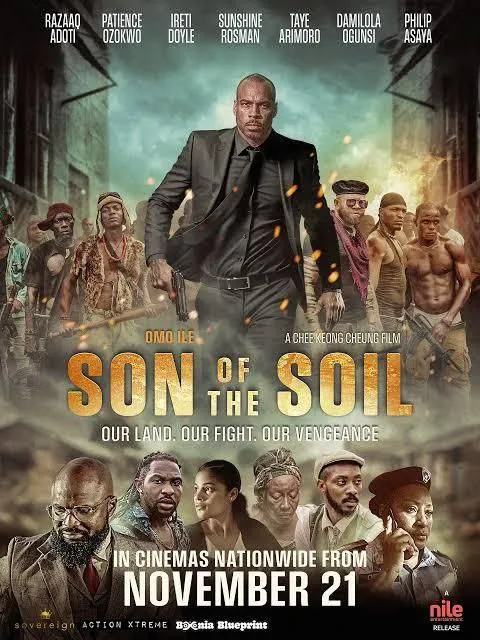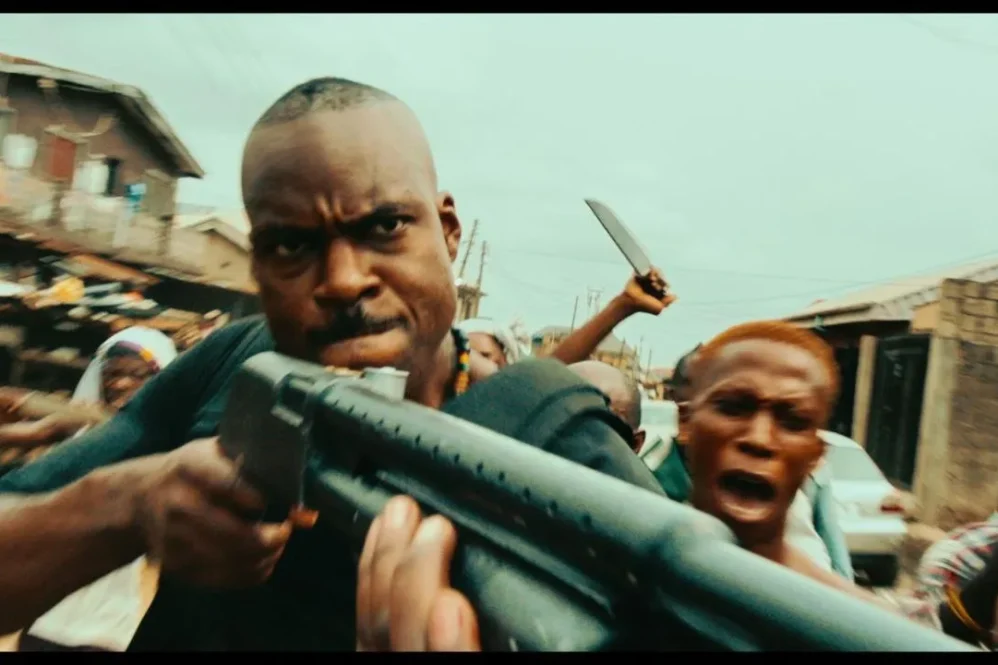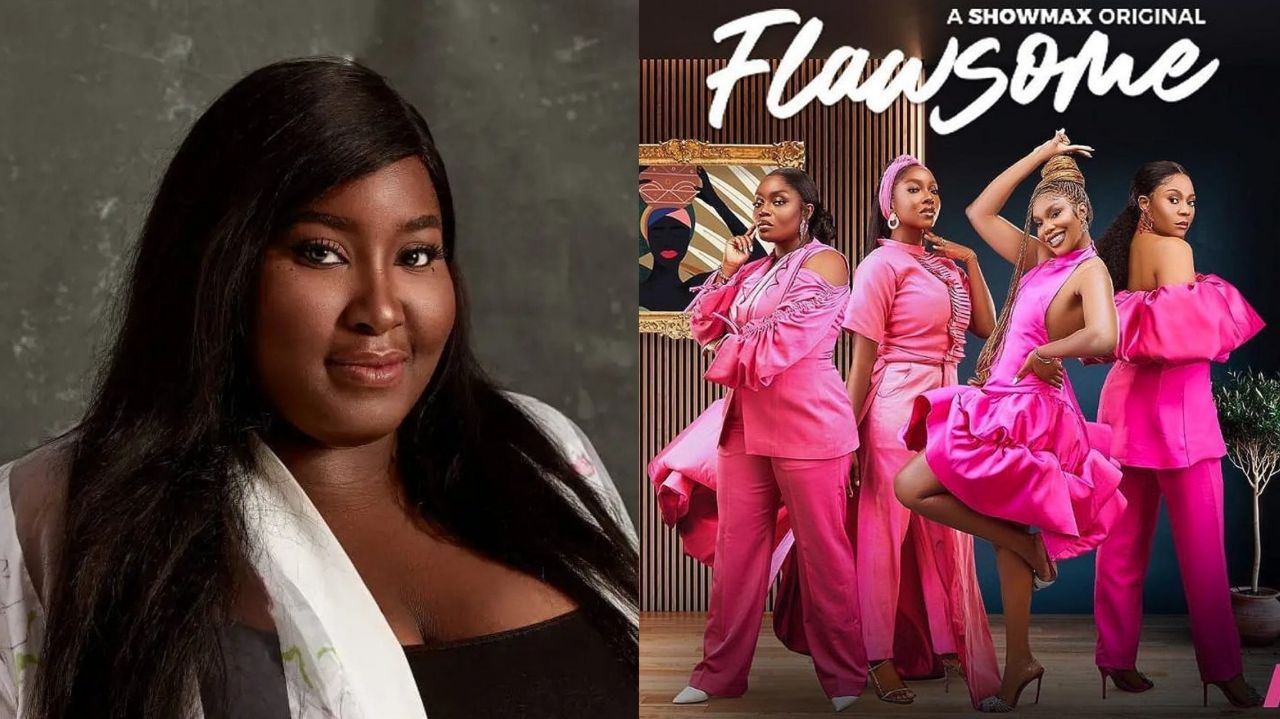AFRIFF: There is no scarcity of bodies in Son of the Soil. Bleeding and strewn across the streets; glistening with sweat, tears and blood; running and ramming into each other; it’s a visceral violence that defines the film. Unfortunately, this violence seems more like a voyeuristic vision of Lagos’ street life detached from any real commentary and philosophy.
(Click to Follow the What Kept Me Up channel on WhatsApp)

The Chee Keong Cheung-directed action flick follows an American soldier (Razaaq Adoti) who returns home after his sister’s death and embarks on a path of revenge against those responsible. It’s the classic revenge tale where a kind of redemption exists at the other side of violence and a male protagonist finds a kind of peace. With Son of the Soil, this story does exist in all its expected beats—the confrontation, the search, the chase, the law enforcement, and the final face off; but its setting in Lagos demands a certain multicontextual approach that it often fails to capture.
We are taken into the streets to witness numerous acts of violence within a story more concerned with its gore than its characters or themes—Shine Rosman’s character, the guilt-ridden love interest, could have been omitted and the film remained unchanged. You’re left to wonder what grounds the grit of the film; the drugs and crime, where does it sprout from; is the violence just self-propelled or an outsider’s gawking view of Lagos?
This propulsion is often well done. The film batters and stings at every turn with punches landing, guns blazing and cutlasses swinging. You’re thrown onto the violent streets of Lagos and asked to survive with Zion, the protagonist, as he pushes his body physically and spiritually (something recent Nollywood action films and shows have played with but never engaged fully).
The camera is never steady and exists in a perpetual Dutch angle, zooming in and out and catching up with movements—a keke chase scene marks a highlight of the film. This constant movement sometimes holds back the effectiveness of emotional moments. We see Zion mourn a huge loss but the lack of stillness makes it difficult to follow.
As Zion, Razaaq Adoti (also credited as writer) throws himself into the physicality required for the role which absolves him of some awkward dialogue. The rest of the cast get their moment in the sun, but Patience Ozokwor (A Ghetto Love Story) as Zion’s mother reminds us why she has earned the veteran status, while Ireti Doyle (To Kill a Monkey) and Damilola Ogunsi (Gangs of Lagos) find themselves effective despite being in typecast jail. Philip Asaya (Kill Boro) as Dr Baptiste tries to impart some elevated villainy to his character, but fear is based on fact and we don’t know enough about him to frighten, which contributes to the anticlimactic nature of the ending.
Despite that, Son of the Soil rises to its highest point with its technical identity. The colours are vivid and still steeped in a sense of darkness, the camera doesn’t shy away from violence, and the sound design elevates the effectiveness of every weapon used. This, though, raises the question of where the line between voyeurism and honesty exists.
There is no way to police who directs what stories, but Son of the Soil seems to suffer from a directorial vision more concerned with the aesthetic of violence than the material condition it exists in. Its gore and gruesomeness are real, a technical triumph even, but at any point you ask the question “why?” you’re met with not many answers. Consequently, we end up with the visual manifestation of a kind of “pointing and looking” on the other side of a chasm of lost context.
Son of the Soil screened at the 14th edition of Africa International Film Festival. It will open in Nigerian cinemas on November 21.
Become a patron: To support our in-depth and critical coverage—become a Patron today!
Join the conversation: Share your thoughts in the comments section or on our social media accounts.
Side Musings
- One of the antagonists, Shaka Bula, was wearing black nail polish. I wonder if he’s in the alte scene and goes for Group Therapy.
- All the detective in this film did was wear a monkey jacket and be bad at his job.
- The flashbacks to his sister’s life were giving the classic “dead wife flashbacks.”





